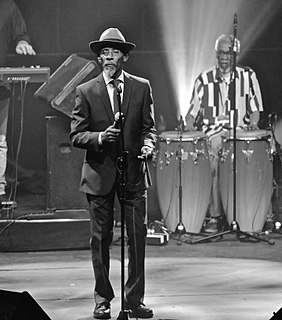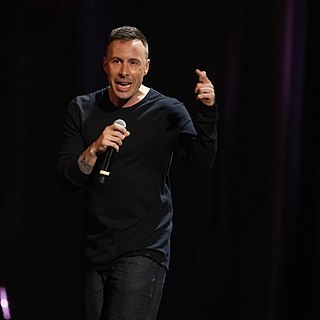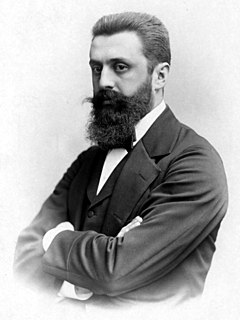A Quote by Melissa Farley
For many women, the experience of prostitution stems from the historical trauma of colonization.
Quote Topics
Related Quotes
We [Americans] have a historical trauma when it comes to the past relationships when it comes to Native Americans and the history of how America was created. With this film, it's nice to see that the trauma is presented from a white male that was in the Civil War and that trauma affects him in a way that still exists.
....the popular music of Jamaica, the music of the people, is an essentially experiential music, not merely in the sense that the people experience the music, but also in the sense that the music is true to the historical experience, that the music reflects the historical experience. It is the spiritual expression of the historical experience of the Afro-Jamaican.
We're painting the same people all our life - it's just the way we look at them that changes. If you experience trauma, you can speak about it in so many different ways. You can speak about landscape, you can speak about your food; it's always different. Trauma is the beginning of life as an artist.
If we take a hard look at what poverty is, its nature, it's not pretty - it's full of trauma. And we're able to accept trauma with certain groups, like with soldiers, for instance - we understand that they face trauma and that trauma can be connected to things like depression or acts of violence later on in life.
At least I've had to come to that in my life, to realize that this stuff called failure, this stuff, this debris of historical trauma, family trauma, you know, stuff that can kill your spirit, is actually raw material to make things with and to build a bridge. You can use those materials to build a bridge over that which would destroy you.
For women in my lifetime things have changed quite a bit, but not enough. They have only changed for women that have education and access to health care in the Western world. But look at the rest of the world. Still in many places, women are sold into premature marriages, prostitution, forced labor; they are forced to have children that they cannot support or that they don't want. They are abused, tortured, exploited and even killed with impunity.
I believe that at the beginning of the life of every artist there is some kind of trauma. We have a problem and all of our life we try to speak about this problem. My trauma was historical. When I was three or four, all the friends of my parents were survivors of the Holocaust; they spoke a lot about that. My father was hiding during the war, it was something totally present when I was a boy. It is sure that it has made me.
I think trauma gets a reductive treatment. We tend to think only violence or molestation or total abandonment qualify as "childhood trauma," but there are so many ruptures and disturbances in childhood that imprint themselves on us. Attachment begets trauma, in that broader sense, and so if we've ever been dependent on anyone, I think there is an Imago blueprint in us somewhere.




































